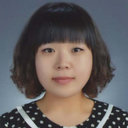Serum-mediated Activation of Bone Marrow-derived Mesenchymal Stem Cells in Ischemic Stroke Patients: A Novel Preconditioning Method.
Raktažodžiai
Santrauka
Stroke induces complex and dynamic, local and systemic changes including inflammatory reactions, immune responses, and repair and recovery processes. Mesenchymal stem cells (MSCs) have been shown to enhance neurological recovery after stroke. We hypothesized that serum factors play a critical role in the activation of bone marrow (BM) MSCs after stroke such as by increasing proliferation, paracrine effects, and rejuvenation. Human MSCs (hMSCs) were grown in fetal bovine serum (FBS), normal healthy control serum (NS), or stroke patient serum (SS). MSCs cultured in growth medium with 10% SS or NS exhibited higher proliferation indices than those cultured with FBS ( P < 0.01). FBS-, NS-, and SS-hMSCs showed differences in the expression of trophic factors; vascular endothelial growth factor, glial cell-derived neurotrophic factor, and fibroblast growth factor were densely expressed in samples cultured with SS ( P < 0.01). In addition, SS-MSCs revealed different cell cycle- or aging-associated messenger RNA expression in a later passage, and β-galactosidase staining showed the senescence of MSCs observed during culture expansion was lower in MSCs cultured with SS than those cultured with NS or FBS ( P < 0.01). Several proteins related to the activity of receptors, growth factors, and cytokines were more prevalent in the serum of stroke patients than in that of normal subjects. Neurogenesis and angiogenesis were markedly increased in rats that had received SS-MSCs ( P < 0.05), and these rats showed significant behavioral improvements ( P < 0.01). Our results indicate that stroke induces a process of recovery via the activation of MSCs. Culture methods for MSCs using SS obtained during the acute phase of a stroke could constitute a novel MSC activation method that is feasible and efficient for the neurorestoration of stroke.


